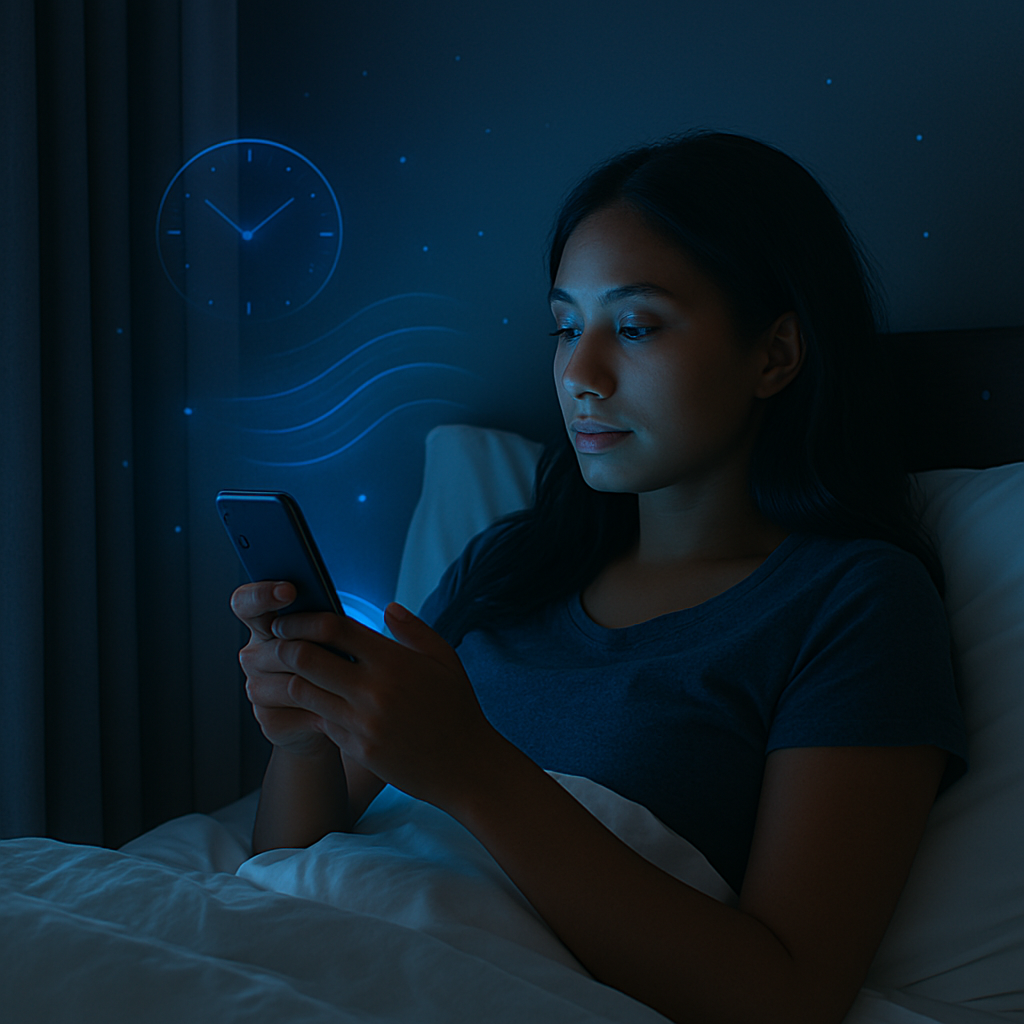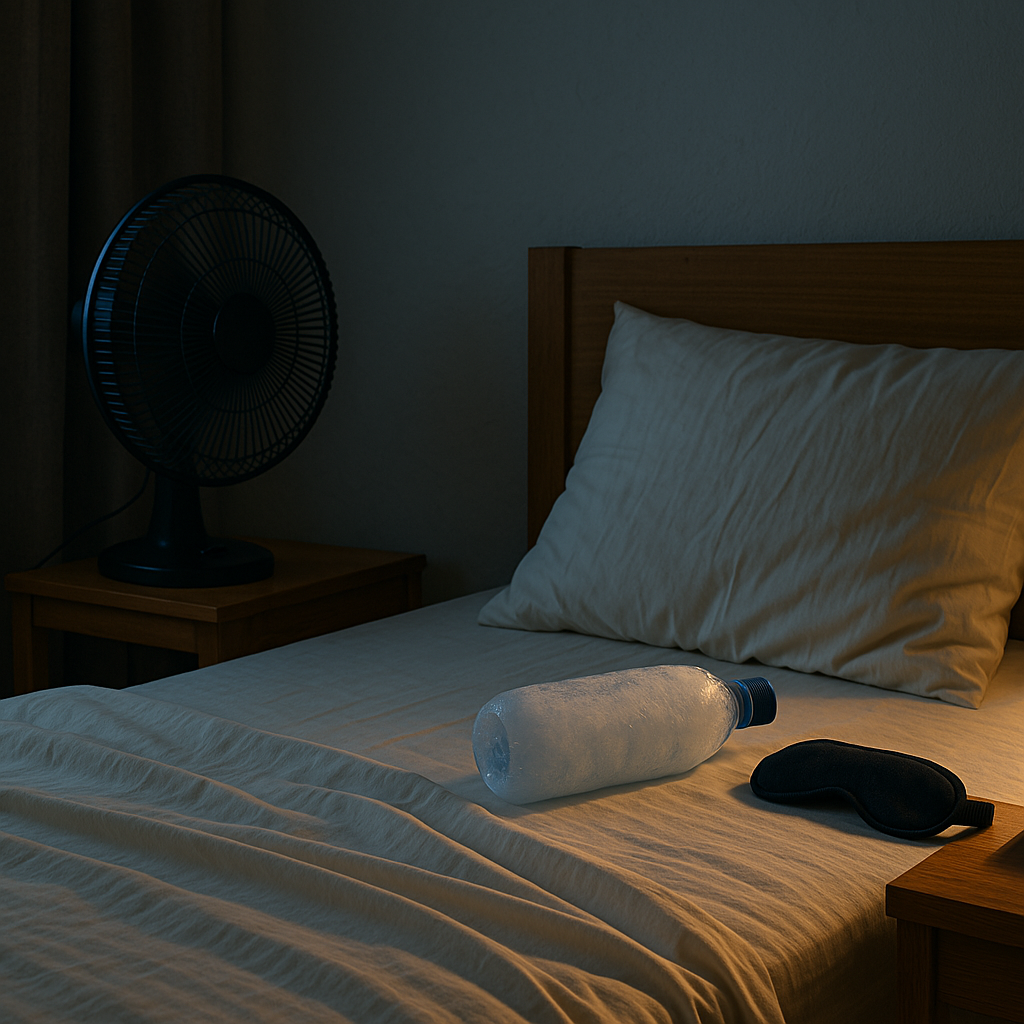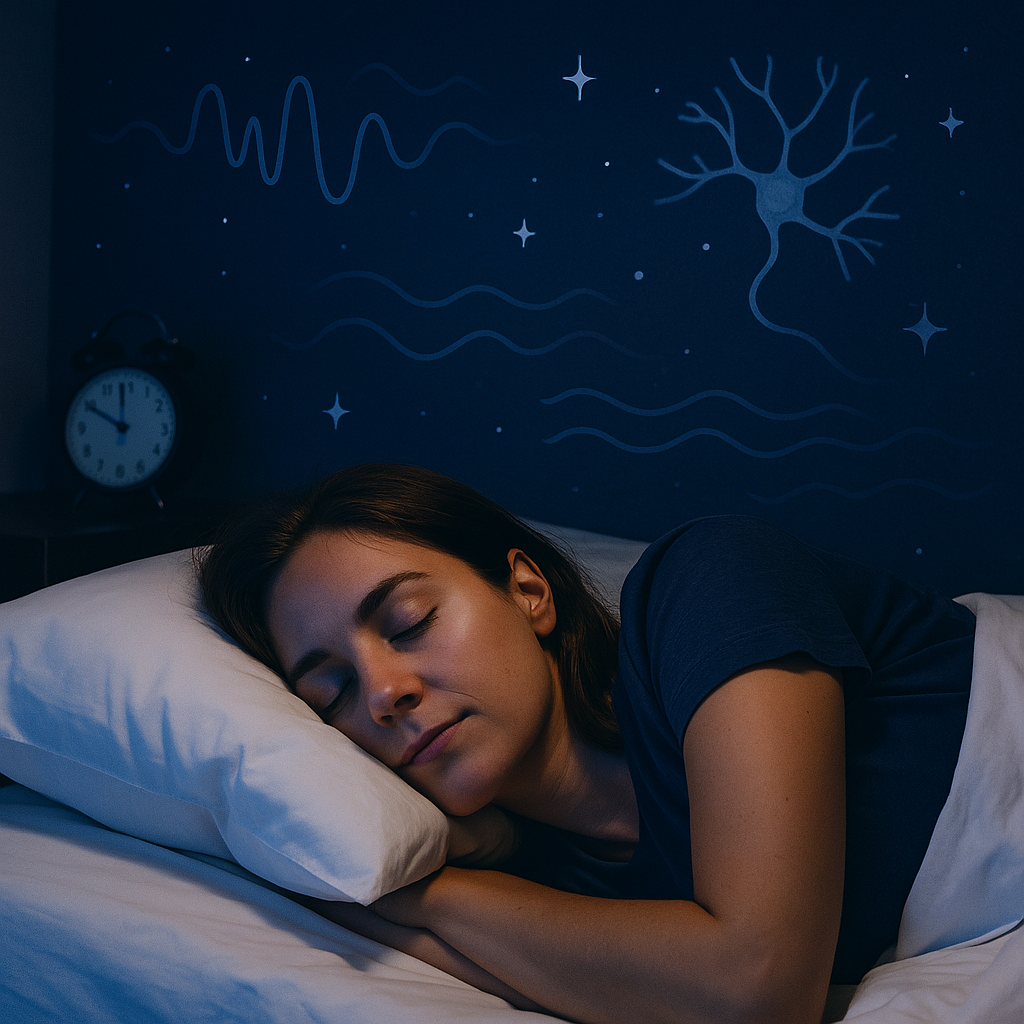Screens are everywhere. From phones and tablets to laptops and TVs, most of us spend hours in front of glowing displays, especially at night. But all that screen time may be doing more than just keeping us up late. It could be quietly sabotaging our sleep.
At the center of it all? Blue light. In this article, we’ll dive into what blue light is, how it affects your body’s natural rhythms, and what you can do to protect your sleep in a digital world.
What Is Blue Light?
Blue light is part of the visible light spectrum, what our eyes can naturally detect. It has a short wavelength and high energy, meaning it scatters more easily and stimulates your brain more than warmer, red-toned light.
Blue light is naturally present in sunlight and plays an important role during the day by helping us stay alert and focused. But it's also emitted by screens, like your phone, laptop, tablet, and LED lighting. And exposure to blue light at the wrong time (like at night) can throw off your internal clock.
How Blue Light Affects Sleep
Here’s where it gets tricky: Blue light exposure after sunset disrupts melatonin production, the hormone your body uses to signal that it’s time to wind down and sleep.
Too much blue light at night can:
- Delay your body’s natural sleep-wake cycle (circadian rhythm)
- Make it harder to fall asleep
- Reduce overall sleep quality and depth
- Shorten REM sleep, which affects memory and mood
Even if you're physically tired, your brain might not get the memo, thanks to blue light keeping it artificially alert.
Scientific Evidence Behind Blue Light and Sleep
Research continues to highlight the strong connection between blue light and disrupted sleep.
One study published in The Journal of Clinical Endocrinology & Metabolism found that exposure to blue light before bed significantly suppressed melatonin production, by more than 50% in some cases.
Another study from Harvard Health found that blue light exposure shifted circadian rhythms by up to three hours, making it harder for participants to fall asleep and wake up naturally.
Translation: the more screen time you rack up in the evening, the harder it becomes for your body to wind down.
Why Screens Before Bed Make Things Worse
It’s not just the light, it’s also what you’re doing on those screens. Scrolling through social media, reading intense news, or binge-watching a new series can all activate your brain when it should be powering down.
Here’s the double whammy:
- Blue light exposure tells your body it’s still daytime
- Stimulating content keeps your brain alert
Together, they create a perfect storm for sleep procrastination and restlessness.
How to Reduce the Effects of Blue Light
The good news? You don’t have to toss your phone out the window to protect your sleep. Here are some simple strategies to limit blue light exposure:
- Power down screens 60–90 minutes before bed
- Use “Night Mode” or “Blue Light Filter” settings on your phone or computer
- Try blue-light blocking glasses, especially if you work late or can’t avoid screens at night
- Opt for warm, dim lighting in the evening instead of bright white LEDs
Think of it as giving your brain time to ease into sleep mode.
Healthy Nighttime Tech Habits
Beyond just limiting blue light, developing calming nighttime routines can help retrain your brain to expect rest.
Here are some tech-free wind-down activities:
- Reading a physical book
- Listening to calming music or sleep podcasts
- Stretching or light yoga
- Journaling or writing down thoughts
- Practicing guided meditation or breathing exercises
And don’t forget your sleep environment - cool, dark, and screen-free bedrooms promote better rest.
Conclusion
We live in a digital world, and while screens aren’t going anywhere, our habits around them can change. Blue light may be small and invisible, but its impact on sleep is anything but. By making mindful changes and creating screen-free rituals, you can protect your circadian rhythm and improve your overall well-being.
Need help building better sleep habits in a world full of distractions? Slumberite is here to help. From science-backed sleep tips to tech-friendly bedtime routines, we’re your go-to resource for smarter, deeper sleep, so you can rest easy, night after night.



Leave a comment
This site is protected by hCaptcha and the hCaptcha Privacy Policy and Terms of Service apply.